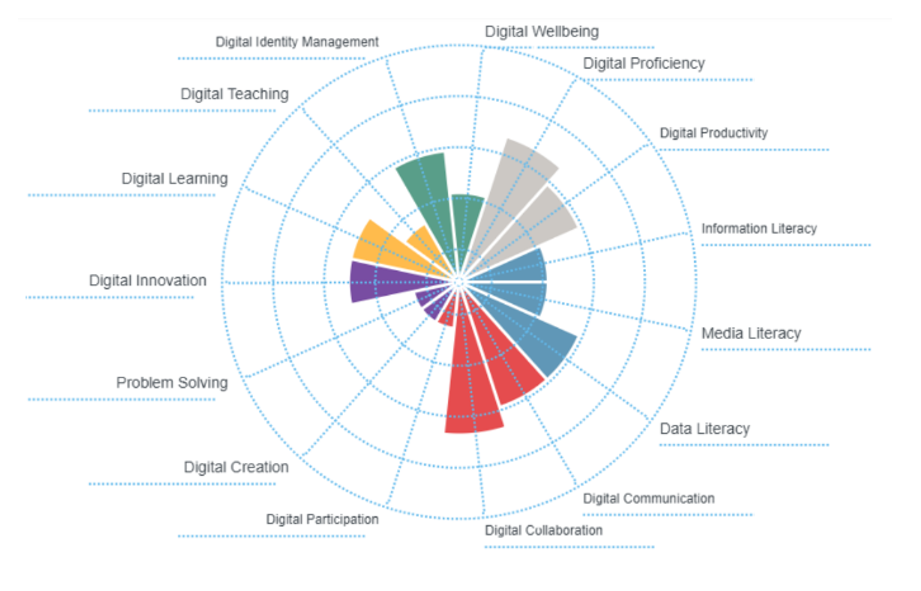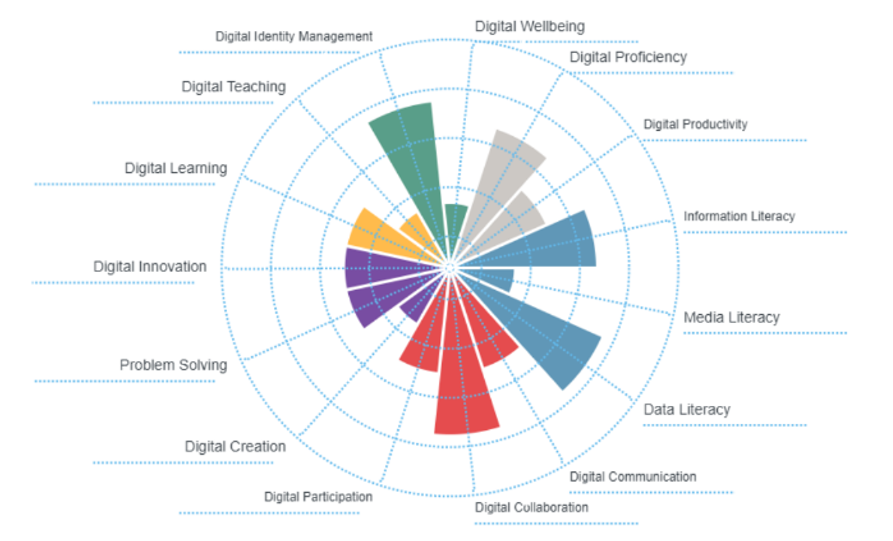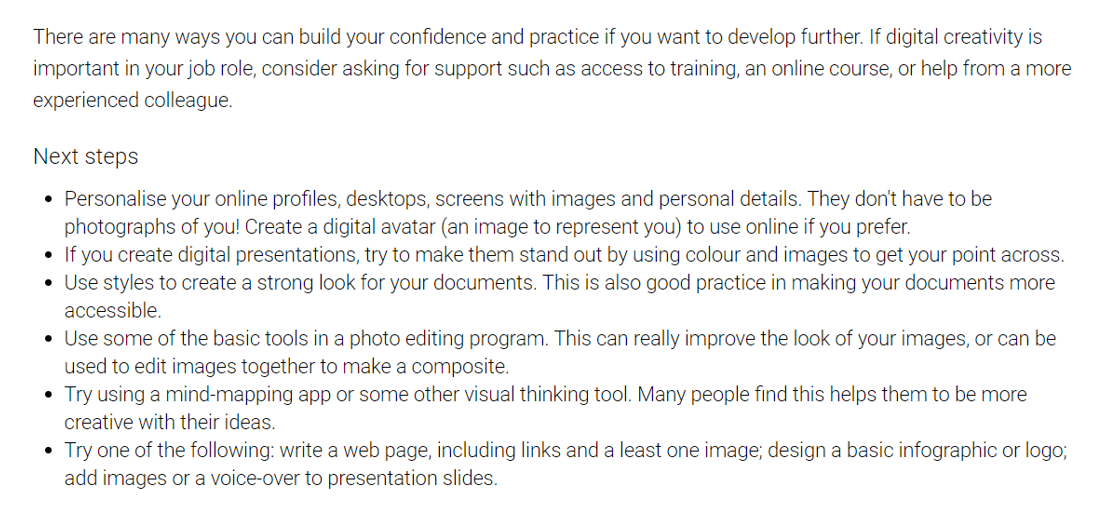At the start of the pandemic, I was introduced to Jisc’s building digital capability discovery tool. It forms part of the wider building digital capability service for subscribers and looks at all aspects of their individual digital capabilities, skillsets and development plans. After answering a few questions in each area to assess my current capabilities, I was able to access a full report on my digital profile and identify areas that I needed to strengthen to improve my skills and overall digital employability – a topic which has come sharply into public focus. A recent article citing LinkedIn research stated that “150 million new technology jobs will be created in the next five years… yet nearly 40% of the UK’s working population lack digital skills.” That means that we will be posing many digital questions as a society that large parts of our workforce won’t be able to respond to effectively. This turbocharges the need for upskilling services such as building digital capability.
Users are also given access to advice and resources on how to develop each area covered in the tool such as digital wellbeing, information literacy and digital creation. In May 2021 (14 months on), I retook the assessment to monitor my progress and wanted to share the results (see charts below) in the hope that it would encourage others to develop their own capabilities.
March 2020

May 2021

You can see some striking differences between the two assessments above. Some of these were anticipated such as the digital collaboration and participation improvements due to the way we have all used technology to facilitate teamwork during lockdown, but others were because of targeted improvement goals I set. I’ve made a conscious effort to upskill myself in the areas of digital identity management and data literacy which have both been reflected in the assessments. These areas translate directly into employability as so many digital jobs now require candidates to be proficient in the use of data and aware of how to develop their (or their employers) online identity positively.
The underlying key point is that the discovery tool allows staff and students in both higher and further education to monitor their digital skills, and make targeted improvements in relevant areas.
Setting targets to boost capability
The visual nature of the report generated helps users to easily identify areas to work on. For me, it’s digital creation. I’m a writer at heart but know today’s audience respond to a range of content outputs, so it’s important to move with the times and ensure what I’m creating is as interesting and accessible as possible. As more people connect with my content and I expand my range of formats, the more employable I become and the more answers I have for the digital questions posed.
The ‘digital creation’ information below is an example from the report explaining more about the digital area before it moves to advice and resources on how to improve it. Using the tool was user friendly and accessible with the results presented in a way that encouraged me as a user rather than scaring me or switching me off.

Access to advice and helpful resources on demand
The real beauty of the building digital capabilities service is that it doesn’t just tell you that you have areas of development – it tells you how to improve them too. That’s empowering as a user because I can view suggested free resources along with advice on what I need to do to drive myself forward. Below you can see the advice and some of the resources the discovery tool suggested I should use to upskill in digital creation.


The resources and next steps allow students and staff at subscribing institutions to take control of their learning in an efficient and systematic way.
Driving the employability of your students and staff
Everyone has online strengths and weaknesses. In today’s digitally dominated world, it’s great to know them in detail along with what you need to do to enhance your skills and increase your prospects of digital employment. The discovery tool is suitable for both staff and students looking to develop themselves and their careers.
It is also suitable for those tasked with supporting the digital needs of others allowing them to maximise the effectiveness of the support and learning provided.
Subscribe to building digital capability
The discovery tool forms part of Jisc’s building digital capability service for subscribing organisations.
Find out more about the building digital capability service.
